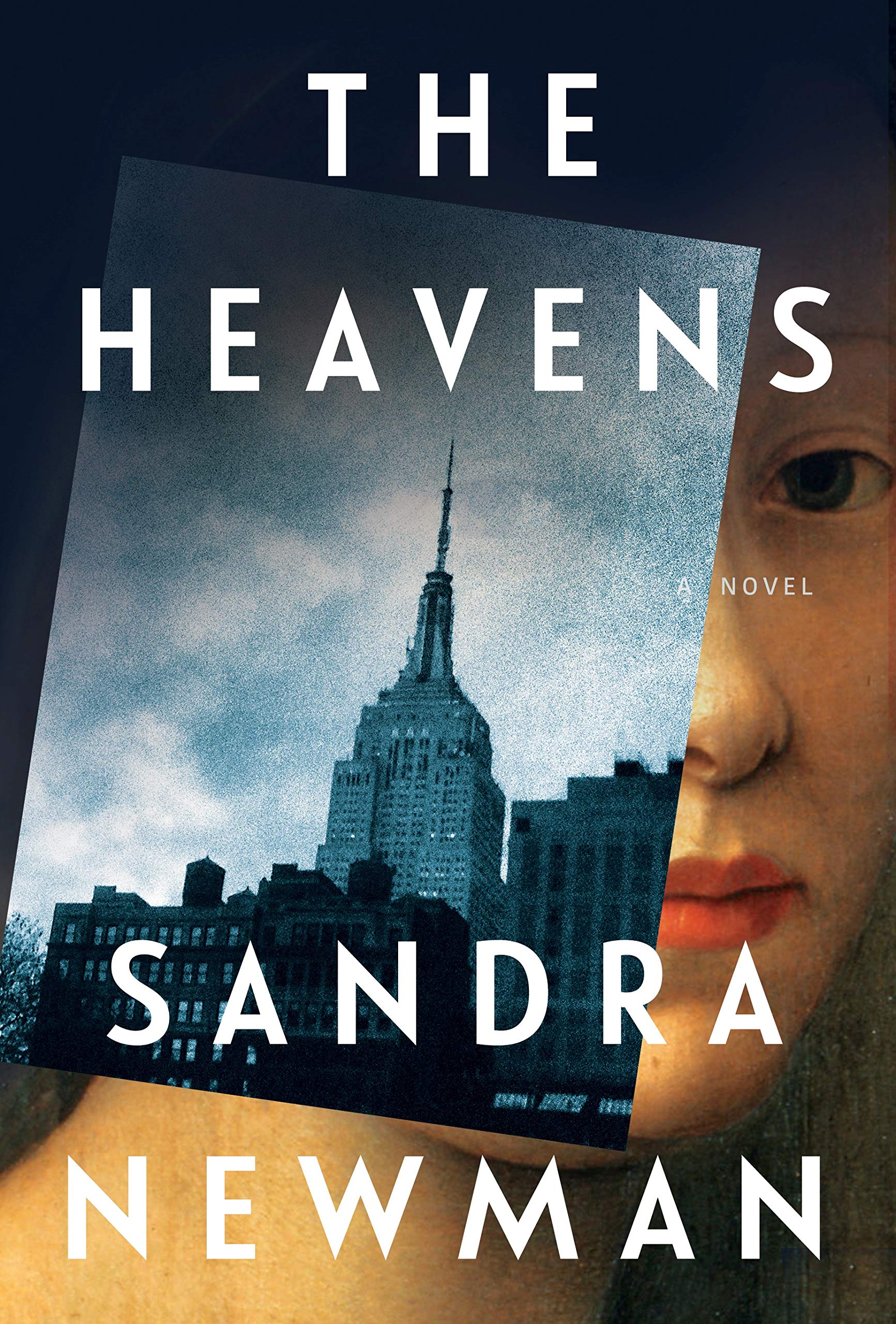| <- Back to main page |
(Grove Press)

A time travel novel will typically fit into one of two distinct categories: sci-fi or historical romance. It's like a dysfunctional duplex where a fair lady with a bodice and a curious piece of jewelry lives next door to killer robots from the future. Sandra Newman's The Heavens is refreshingly free from such genre tropes. It is the story of a dreamy Millennial in New York City whose journey is less like a typical narrative arc and more like a quiet wandering down a garden path—a path that keeps forking off until you find yourself not far from its beginning.
Her name is Kate and she meets a guy named Ben at a party hosted by her rich friend Sabine:
Most of the illumination was from solar-powered tea lights, which the rich girl had hung on the fire escapes all day to charge, then pasted along the walls. That light reflected softly from the heavy glass tumblers into which wine was poured. There wasn’t even music playing. The rich girl said it gave her bad dreams. New York City, so everyone was interning at a Condé Nast publication or a television program or the UN. Everyone a little in love with each other; the year 2000 in the affluent West.
If this all sounds a little too fey and precious to be our reality, it is. We soon learn that Kate meets Ben “that summer when Chen swept the presidential primaries on a wave of utopian fervor, when carbon emissions had radically declined and the Jerusalem peace accords had been signed and the United Nations surpassed its millennium goals for eradicating poverty, when it felt as if everything might work out.” So, not our reality. But Kate has the odd knack of dreaming a recurring dream, where she is a waiting woman called Emilia in sixteenth century England, and when she wakes the Y2K world has shifted a little, each time growing a little darker, more like the world we know. Little details about her life have changed, which causes Kate to seem a bit crazy, and wreaks havoc in her relationship with Ben:
Kate asked who Bush was, and everyone groaned. Ben took Kate’s hand and whispered the answer in her ear, and she leaned against his shoulder and cried a little bit. For a while Ben and Kate were whispering about Bush and Gore and her imaginary brother and father, while the others peaceably argued and watched TV and argued.
In the meantime, Emilia’s world burns as brightly as Kate’s, festooned with pageantry and texture:
And she was led to supper in the Great Hall, where all the household was noisily arrayed, a hundred people at ten long tables; and seated at the corner of the lowest table, disappointingly far from the Earl of Southampton, across from a plump gentlewoman and beside Sad Will.
Thus Newman’s book sets up an elegant system, with parallel narratives in different ages side by side, somewhat like the duplex I mentioned above, but with a door connecting the two sides—the door being Kate. Anya Seton used a similar technique in Green Darkness, but the premise there was reincarnation rather than time travel, and the present day did not keep shifting like desert sands from chapter to chapter.
We are never told exactly how Kate dreamingly time travels across the ocean and into the sixteenth century, but she does, in the person of Emilia, meet others who have similar abilities, and they have used them to gather fame or power in the present by meddling in the past—at the cost of a more and more dystopian future. Famous events and personages in both eras take on a more imporant role as the narrative unfurls, but it remains essentially Kate’s story.
An innovative, dreamy book of thoughts, The Heavens never ignites into a page-turner, probably because of its shape-shifting nature—it’s like playing a game when the other person keeps changing the rules. On the other hand, the malleable nature of The Heavens allows us to vicariously experience Kate’s disorientation and confused feelings—and perhaps through Kate we can understand the viewpoint of many young people growing up in an early twenty-first century filled with fake news and revisionist histories. It is not the memory of the past that weighs on us, Newman seems to be saying, but the heaviness of free will.
- Joel Van Valin